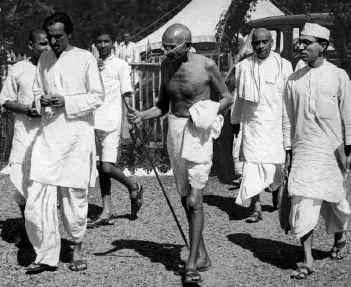Mahatma Gandhi’s philosophy was deeply rooted in truth, nonviolence, and self-discipline, shaping not just India’s independence movement but also global struggles for justice and equality. His ideas were not merely political—they were a way of life, emphasizing ethical leadership, social responsibility, and spiritual resilience.
1. Satyagraha (Truth & Nonviolent Resistance)
At the heart of Gandhian philosophy was Satyagraha, meaning “holding onto truth.” Gandhi believed that truth and moral force could overcome oppression without resorting to violence. Through peaceful protest, civil disobedience, and self-sacrifice, he challenged injustice while preserving human dignity.

2. Ahimsa (Nonviolence)
Nonviolence was not just a strategy—it was a fundamental principle of life. Ahimsa meant avoiding harm in thoughts, words, and actions. For Gandhi, violence only created more suffering, whereas love and compassion had the power to change hearts. This principle influenced global movements, including Martin Luther King Jr.’s civil rights activism.

3. Sarvodaya (Welfare of All)
Gandhi envisioned a society based on Sarvodaya, meaning “progress for all.” He rejected inequality and sought an India where every individual, regardless of caste or creed, could live with dignity and opportunity. His advocacy for social reforms, education, and rural development reflected this belief in uplifting the weakest sections of society.
4. Swadeshi (Self-Reliance & Economic Independence)
Gandhi championed Swadeshi, urging Indians to use locally made goods rather than relying on foreign imports. The revival of handicrafts, spinning khadi (handwoven cloth), and rejecting British products symbolized economic freedom and national pride. His vision promoted sustainable living and self-sufficiency, ideals still relevant today.

5. Simple Living & Self-Discipline
Gandhi led by example—his frugal lifestyle, vegetarianism, and commitment to self-restraint demonstrated the power of mindful living. He believed material wealth was secondary to spiritual and moral growth, encouraging people to focus on simplicity, ethics, and humility.